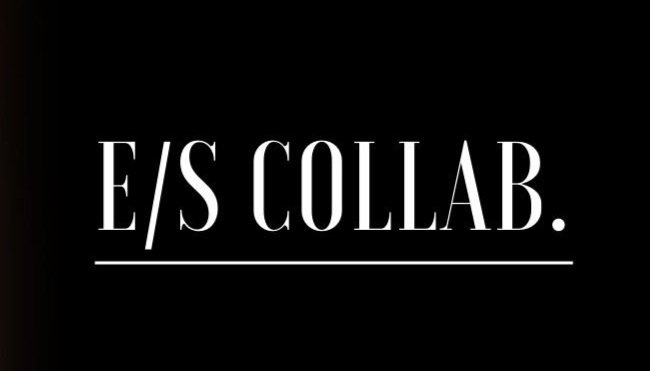Questions Asked More Than Once: Clearances
Questions Asked More Than Once is a sub-section of the E/S Collab. Blog. There are the generic FAQs and then there are those very specific questions that are often asked too late into the game. In an attempt to unriddle the important business stuff, we’re publishing those questions asked more than once and the answers we’ve given more than once. To be clear, posts in this series won’t be diving too deep and will be limited to a simple Q&A style.
1. How do I know what needs to be cleared?
Honestly, this is such a broad question that gets asked a lot. Clearances are a big deal and extremely important to have them done properly. You don’t want to get caught using someone else’s brand, design, trademark, other intellectual property without their permission, unless you can meet certain tests and exceptions that would allow you to do this. Start with a script clearance report and then take it from there but you’ll want to have someone specialized advising on clearances throughout production. If you’re making a documentary, you should be working with a fair use lawyer. All of this becomes extremely important when you go to take out E&O insurance.
2. One of my cast members is covered in tattoos. It’s fine to film them, right?
Yes, of course – provided you get permission from the tattoo artist and anyone else who might have an interest in the design. Copyright exists in tattoos too!
3. I’m using a book as a prop in a particular scene, can I do that?
Sure, but depending on the manner in which it’s used, how long it’s on screen for and the cover of the book, you may need to get clearance from the publisher and anyone else who may have rights to the work. Run it by your production lawyer and if in doubt, get it cleared.
4. I’m a writer, do I need to think about clearances?
Yes and no. It’s not technically your job to do this, but when you’re writing, if one of your characters is, for example, obsessed with a particular brand and it’s central to their character, you might want to consider the implications of that – the brand may need to be consulted, or provide approval over certain scenes which can be costly, time consuming and then some. Having said that, there are always work arounds to any problem, so it’s really up to you.
5. I’m a producer with the rights to a script. At what point do I need to think about clearances?
No later than pre-production – you’ll want to send the script to a script clearance company and have a specialist advising you throughout production on what needs to be cleared and what can pass.
6. I worked on a show and want to include scenes/stills to display on my website and showcase my work. Can I do that without asking the producer/network?
Not really. The footage/stills will more than likely belong to the producing entity/network. As a rule, it’s always easiest to pre-negotiate this and have permission to use materials for personal portfolio uses included in your work contract so you don’t have to keep going back and getting permission each time.
7. There’s a wall that I want to feature in a scene and it’s covered in graffiti. Can I do that?
Who doesn’t love a nice textured graffiti wall in an industrial complex? Well, unfortunately in order to shoot it you might need to get the graffiti cleared by the artist (yes, the artist) because in most cases, it’s protected by copyright. Again, check with your production lawyer.
8. I have the right to use a piece of music in my film for only X year(s). Do I still have ownership over my film?
Yes and no. You obviously still own your film but it’s now encumbered and you can’t really exploit the film without risk - you don’t have all the necessary permissions and clearances to do so. You should always look to get your music licenses in perpetuity or on a rolling basis otherwise, once the license expires, you’ll need to re-edit the film, take out the no longer authorized piece of music, and replace with a new track in order to claim absolute ownership over the film and unencumbered rights.
9. If a work has entered the public domain in the United States, does that mean it’s in the public domain worldwide?
Nope, nope, and nope! Copyright laws vary tremendously between countries. You should always get a formal legal opinion if you’re relying on a public domain exception for use of someone else’s work.
10. I want to shoot the outside of [insert name of extremely recognizable old building]. Can I do that without permission?
People have done this, but you really shouldn’t. Get a permit, get permission, get clearance, get it in writing. It’s a hassle now but it’s much safer than the alternative.
11. How do I actually get clearance? Can I just confirm it by email?
It’s usually a bit of a research mission, but it’s about finding the owner of the work you’re trying to get cleared. It’s usually not good enough to just have an email confirming you can use something because there are specific clearance related terms that are needed when it comes to delivery and distribution of a project. An email is definitely better than nothing, but if you can get the owner of what you’re trying to get cleared to sign an actual clearance release form, that would be two thumbs up.
Questions? Drop us a line.
Disclaimer: This post should not be construed as legal or commercial advice and we recommend that you obtain independent advice with respect to clearances for your specific project and especially before entering into any clearance agreements. E/S Collab. makes no warranty or representation that this information is exhaustive, complete or accurate.
